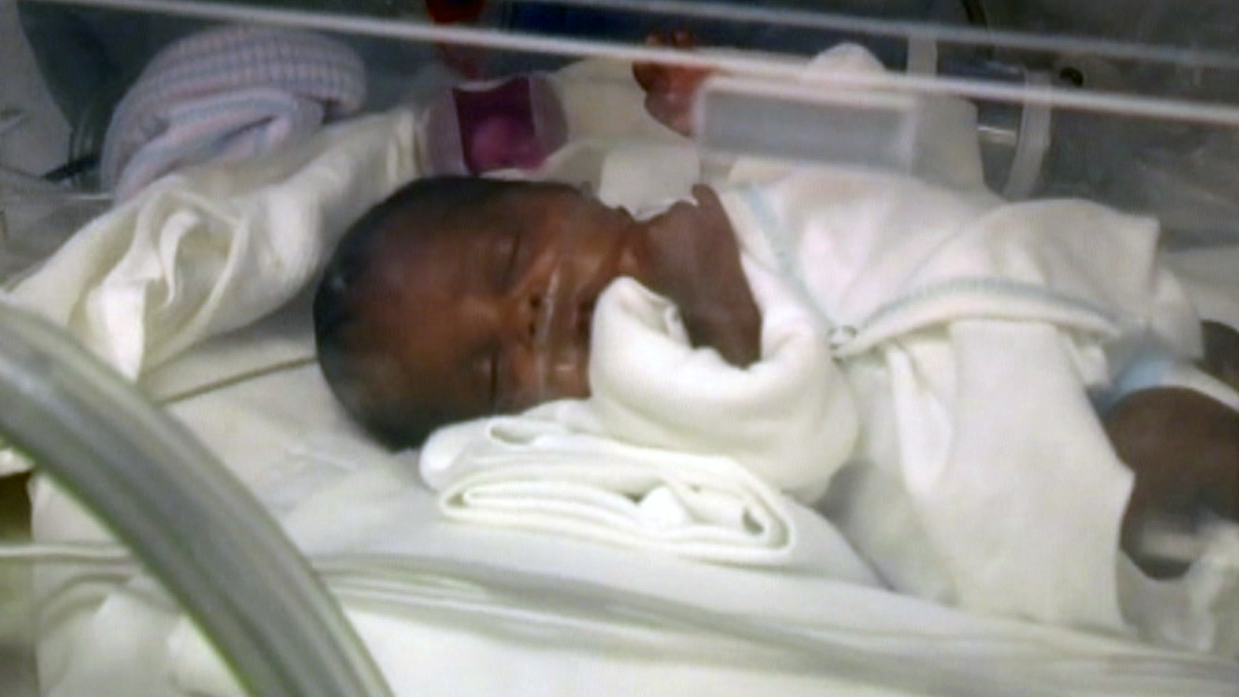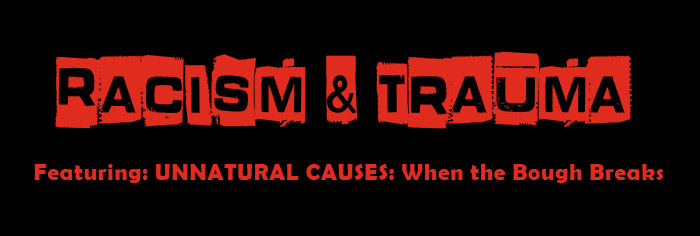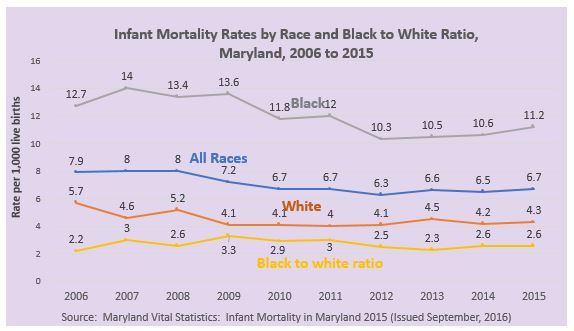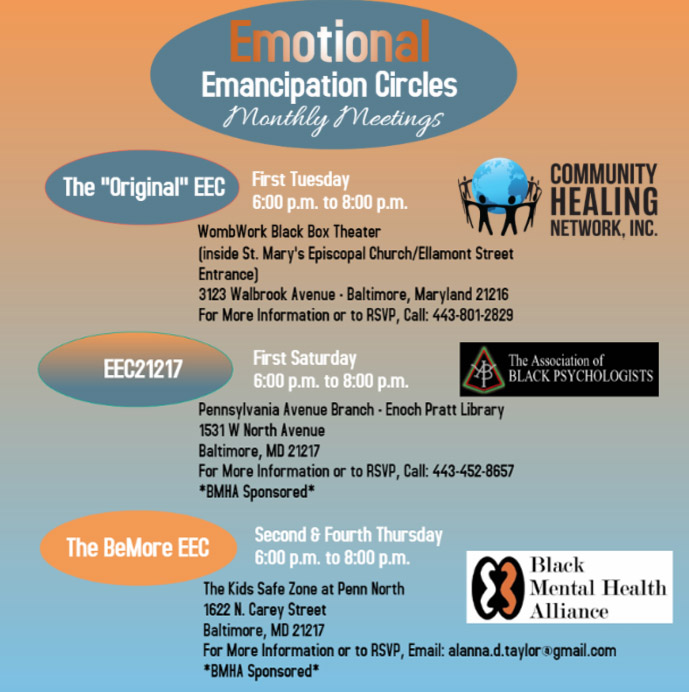EXPERIENCING RACISM CHANGES US
I cannot say that I was surprised when I learned that experiencing racism in this country changes us, so much so, that it can have a demonstrable effect on both our physical and mental health. But… I was surprised to learn that its impact could be traced directly to one of our key health measures, infant mortality.
I am a “little” older, so I had children back in the early 1990’s. My friends and I had graduated from college with advanced degrees. We were knowledgeable about health and practicing a somewhat healthy lifestyle, so I was surprised when I noticed that many of my black friends and acquaintances were having premature or low birth weight babies. To the contrary, my white friends were having full-term, huge, 8 and 9-pound babies. It just didn’t make sense to me. I didn’t understand it. I knew my experiences were anecdotal; the sample size wasn’t big enough to mean anything from a research perspective. Still, I couldn’t come up with a reason for why it was happening.
And then, it continued to happen. As my children grew older, and my younger cousins and their friends and acquaintances had babies, I saw it again and again. It was a mystery. That is until I came across the film series, “UNNATURAL CAUSES” and specifically the segment, “When the Bough Breaks.” The series was produced by California Newsreel & Vital Pictures, Inc. and released in 2009.

WHEN INCOME AND EDUCATION CAN’T SAVE YOU
This film talks about how, even after adjusting for income and education, black women have higher rates of infant mortality, and of low-birth weight babies. It highlights the story of Kim Anderson, a successful Atlanta executive and lawyer. The clip below is six minutes, but it’s worth watching.
GIVE US YOUR TIRED, YOUR POOR…WE’LL GIVE THEM A TASTE OF AMERICAN RACISM
One of the things that stand out most is the comparison they do between African immigrants to the United States versus white and black women. They demonstrate how, when Africans first immigrate to this country, their incidence of infant mortality more closely mimics white women. However, it only takes one generation, for the situation to change, for their children to begin to reflect the higher infant mortality rates of African Americans already here.
Now, this film was produced in 2009, eight years ago, so naturally, the first thing you wonder about when you see the film is, “What’s happening now? Is this old news?”
The chart below shows infant mortality rates by race for Maryland from 2006 to 2015. So, if we just compare 2009, when the film was released, to 2015, things look pretty good. Infant mortality for blacks, in Maryland, dropped from 13.6 per 1000 live births in 2009 to 11.2 in 2015, that’s an 18% decline. The ratio to white births also decreased from 3.3 times as high to 2.6x. But, when we take a closer look, the picture doesn’t look as rosy. In fact, the rate has been climbing since 2012 when infant mortality reached a low of 10.3 per 1,000 live births. Further, the ratio, of black to white births dropped to 2.3x in 2013, but now it’s up to 2.6x. And, if the signals we are getting from the current administration hold true, with regard to cuts in programs for the poor, what can we expect in the future?
After seeing this information, personally, the movie seemed like a natural fit for the TCC community, so we screened the film at the March general meeting.
SMOTHERING
The fact is that racism is so omnipresent these days; it’s smothering us. People, of all races, are feeling it in an intense fashion, and we saw that reflected in the group discussion led by Jan Desper Peters and Yolanda Ogbolu, Ph.D. People want to know what they can do to change this conversation. They want to know why we’re moving backward, instead of forward.
Of course, infant mortality is just one lens to view how racism impacts our health. There are many other traumatic experiences that can be linked to race. The fact is when the original research on Adverse Childhood Experiences was conducted in 1995 – 1997, it was performed with a predominantly white audience. However, since that time studies like the Expanded ACES Study in Philadelphia, conducted in 2013, acknowledge the fact that in minority populations, race in and of itself, can be considered an adverse childhood experience.
Last year, in March, the Black Mental Health Alliance invited H. Wesley Clark, MD, JD, MPH, CAS, FASAM, to Baltimore to talk about racism and trauma. One of the slides he presented included key causes of trauma in the black community. Racism was number one on his list.
Racism exhibits itself in everyday life, economic factors, housing, employment, policing, municipal service, the criminal justice system. There just aren’t many places blacks can escape racism. One could say it’s the #1 health concern for African Americans because it’s the leading cause of trauma. Dr. Clark listed other issues also, and it puts racism in perspective. He included:
- Racism
- Gun Violence
- Incarceration
- Poverty
- Intimate Partner Violence
- Sexual Violence
- Elder Abuse
- Child Abuse
- Suicide
- Homicide
- Mental Illness
- Substance Abuse
The simple fact is, there are very few black people in this country who haven’t been touched by racism.
HEALING
So, what do we do with this?
One of the things the Black Mental Health Alliance is doing is sponsoring Emotional Emancipation Circles. They offer a place where black people can go for support to heal from systemic racism and the lies of black inferiority. Below is a copy of their flier.
And there’s more. People all over the country are implementing proven methodologies to help reduce the impact of racism. Check out this Ted Talk from Miriam Zoila Pérez, the doula turned journalist.
Do you have solutions that are working for you? Share them with us. Comment below.



